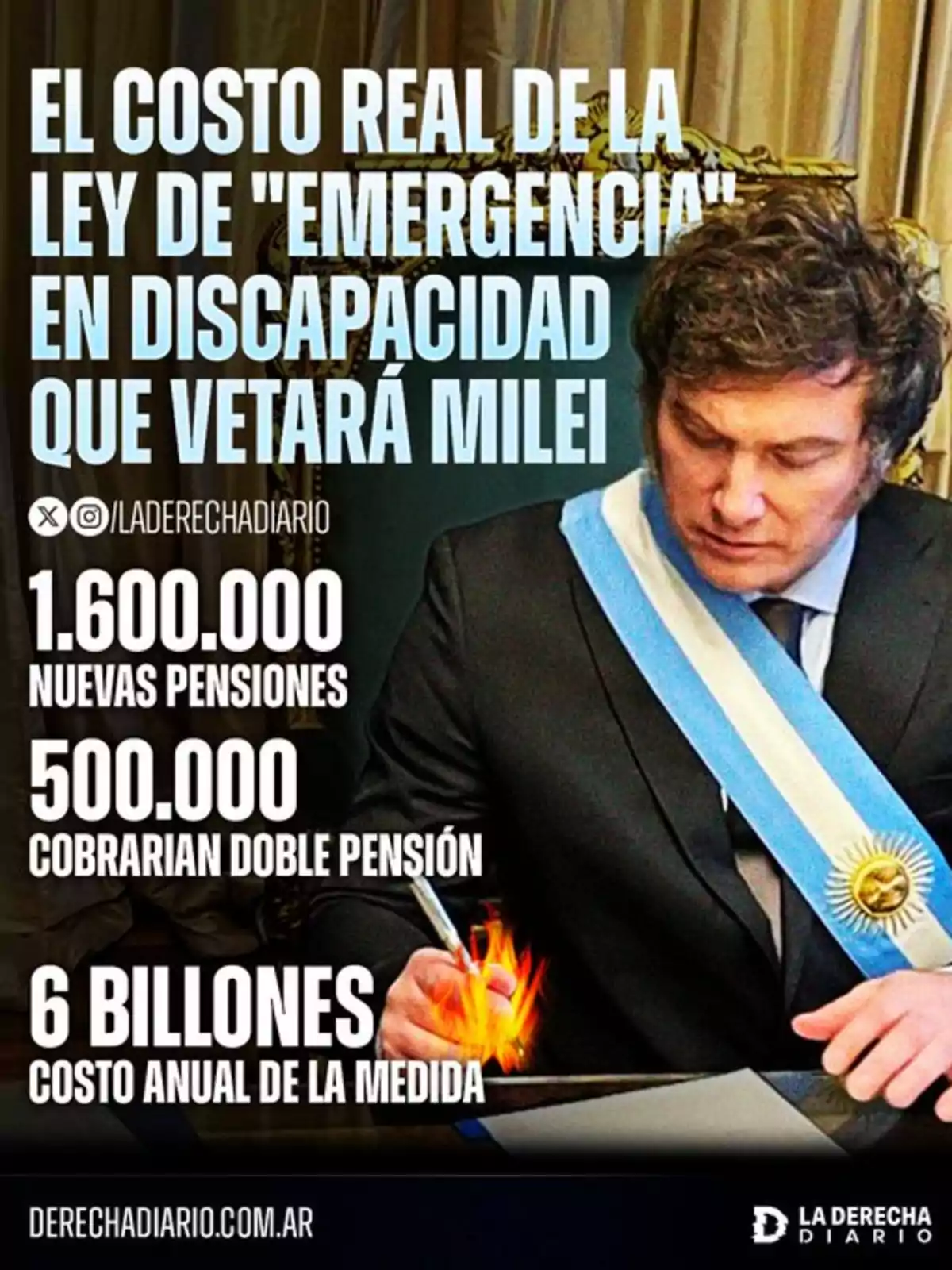
The real fiscal cost of the 'emergency' disability law vetoed by Javier Milei
Thanks to the president's decision, the fiscal surplus was preserved and a new economic crisis was avoided
President Javier Milei vetoed on Monday the disability emergency law approved by Kirchnerism in Congress. This bill, far from aiming to help people, would have meant the destruction of the fiscal surplus, the bankruptcy of the State, and a new economic crisis for the country, sending millions of Argentinians into poverty.
The regulation provided for the creation of a Universal Disability Pension that, according to official estimates, would have incorporated more than 1.6 million new beneficiaries, generating a fiscal impact exceeding 6 trillion pesos (13.2 billion pounds) annually, that is, more than 5 billion dollars.
Milei's government explained that the measure, beyond its "humanitarian" statement, implied an unsustainable financial burden for the State and duplicated already existing benefits without a serious evaluation of the cases.

One of the most serious points of the vetoed law is that it automatically expanded access to a non-contributory pension to any person holding a Unique Disability Certificate (CUD), regardless of the severity or the real possibility of entering the labor market.
Furthermore, it is important to note that Kirchnerism massively distributed these certificates during its administrations, even in cases where the limitations were mild or did not represent impediments, a fraud that squandered Argentinians' money and that the libertarian administration is working to correct.
Meanwhile, the vetoed law also would have meant that 500,000 people would receive a double pension, since they currently receive disability benefits. The bill did not provide for any incompatibility or review clause, which would generate an overlap of aid that distorts the principle of equity in the system.

This way, decree 534/2025 by President Javier Milei completely vetoed the regulation, along with two other laws that also implied increases in spending without a source of funding. The decision will be sent to Congress, which could insist with a qualified majority, although for now the numbers would not be favorable to the opposition.
The measure reinforces the course of the libertarian government to move toward an Argentina without unjustified privileges, with fiscal responsibility and without yielding to the extortion of populism that left the country on the verge of the worst crisis in history.
More posts: